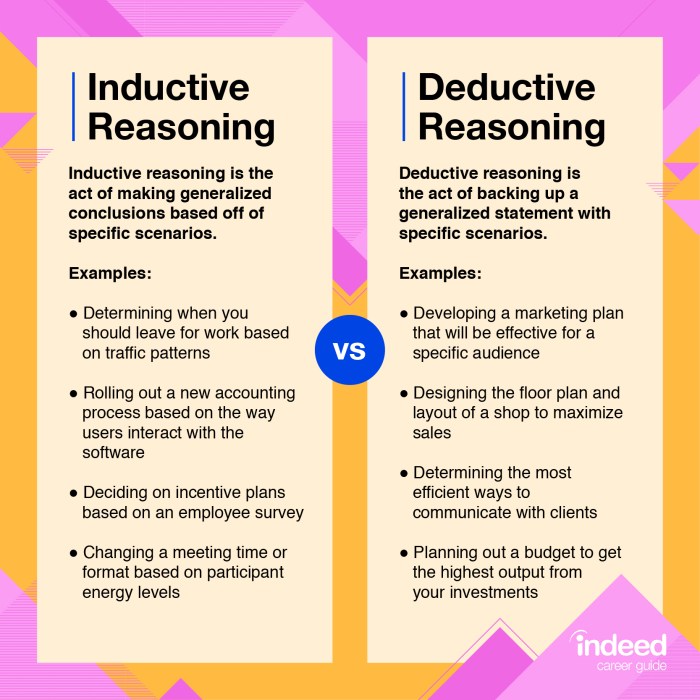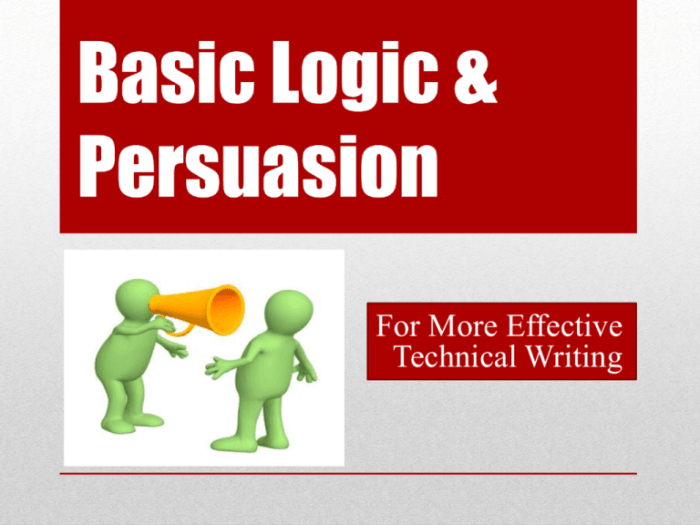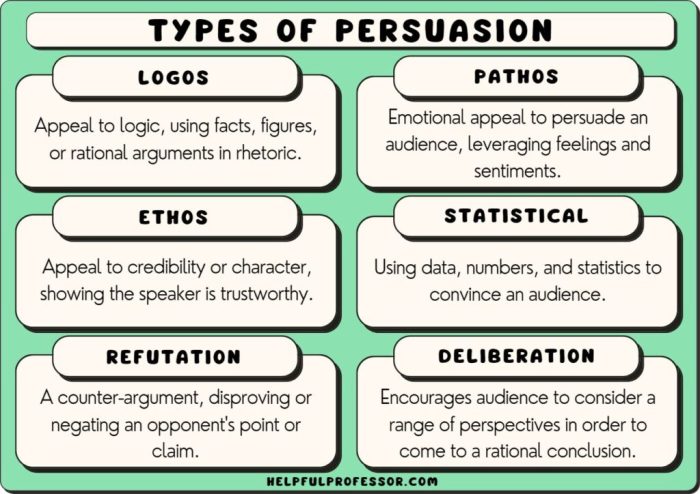Logic, reasoning, and persuasion are fundamental skills that underpin effective communication, critical thinking, and decision-making. Logic reasoning and persuasion rutgers explores the theoretical foundations and practical applications of these essential tools, providing readers with a comprehensive understanding of how to construct sound arguments, evaluate evidence, and influence others.
This comprehensive guide delves into the methods of logical reasoning, including deductive and inductive reasoning, and examines the techniques of persuasion, such as emotional appeals, logical arguments, and social proof. It also analyzes the ethical implications of using persuasion techniques and explores the applications of logic, reasoning, and persuasion in diverse fields such as law, business, and politics.
Introduction

Logic, reasoning, and persuasion are essential skills that can be applied in various aspects of life. Logic provides a framework for clear and precise thinking, reasoning allows us to draw conclusions from evidence, and persuasion enables us to effectively communicate our ideas and influence others.
Methods of Logical Reasoning

There are two main types of logical reasoning: deductive and inductive.
Deductive Reasoning
Deductive reasoning involves drawing a conclusion that is guaranteed to be true if the premises are true. The most common form of deductive reasoning is the syllogism, which consists of a major premise, a minor premise, and a conclusion.
- Major premise: All men are mortal.
- Minor premise: Socrates is a man.
- Conclusion: Therefore, Socrates is mortal.
Inductive Reasoning
Inductive reasoning involves drawing a conclusion that is likely to be true based on the evidence. Inductive arguments are not as strong as deductive arguments, but they can be used to make reasonable conclusions in the absence of certainty.
- Premise 1: I have seen several black crows.
- Premise 2: All the crows I have seen have been black.
- Conclusion: Therefore, all crows are black.
Techniques of Persuasion: Logic Reasoning And Persuasion Rutgers

There are many different techniques of persuasion, each with its own strengths and weaknesses. Some of the most common techniques include:
- Emotional appeals:These appeals target the emotions of the audience, such as fear, anger, or pity.
- Logical arguments:These appeals use logic and evidence to support a claim.
- Social proof:This technique uses the behavior of others to influence the audience’s behavior.
Applications of Logic, Reasoning, and Persuasion

Logic, reasoning, and persuasion are essential skills in a wide variety of fields, including:
Law
Logic and reasoning are used to construct legal arguments and to determine the guilt or innocence of a defendant.
Business, Logic reasoning and persuasion rutgers
Persuasion is used to sell products and services, and to negotiate contracts.
Politics
Logic and reasoning are used to develop political platforms and to debate public policy.
FAQ Insights
What is the difference between deductive and inductive reasoning?
Deductive reasoning draws a general conclusion from specific premises, while inductive reasoning infers a general conclusion from a set of observations.
What are the key techniques of persuasion?
Emotional appeals, logical arguments, and social proof are among the most common techniques of persuasion.
How can I improve my logical reasoning skills?
Practice identifying fallacies, constructing valid arguments, and evaluating evidence.